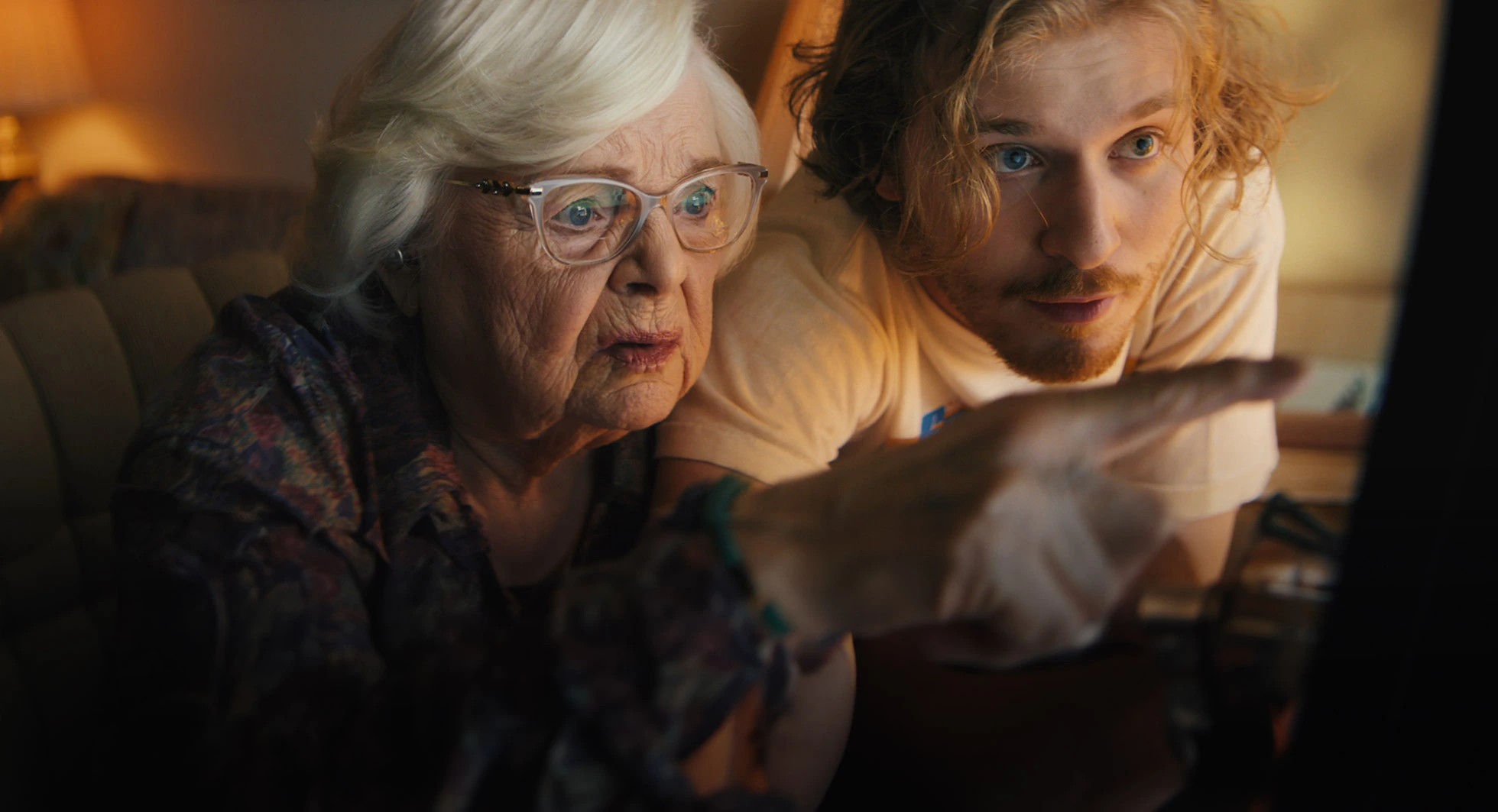Film Review: Thelma
Film
Thelma
Director: Josh Margolin
Zurich Avenue, Invention Studios and Bandwagon
In Theaters: 06.21
It’s becoming increasingly difficult to be an action fan in recent years. The same basic movie is remade two to three times per year, and when something truly feels new, it’s quickly copied so many times that it loses all of its luster. The exception to this is Josh Margolin’s Thelma, which not only feels fresh, but I’ll be surprised if we see many imitators.
Thelma Post (June Squibb, Soul, Inside Out 2) is a 93-year-old grandmother who gets a phone call from someone who says that he’s her grandson, has been in an accident, and is currently in jail. This is followed by a call from a man claiming to be her grandson’s attorney, who tells her to send $10,000 as quickly as possible. Thelma does as she’s told, only to discover that her grandson, Daniel (Fred Hechinger, Eighth Grade, News of The World), is just fine and that she’s been the victim of a scam. Everyone agrees that there’s no way to get her money back. The incident makes Thelma’s daughter, Gail (Parker Posey, Waiting For Guffman, Superman Returns), start to wonder if it’s time to put Thelma in an assisted living facility. This doesn’t sit well with Thelma, and—inspired by watching a Mission: Impossible movie with Daniel—she sets out on her own to find the scammers and get her money back, with the help of her long-time friend Ben (Richard Roundtree, Shaft, Roots) and his mobility scooter.
The brilliance of Thelma lies in the way that it hits all of the major beats of an action film and creates suspense without betraying the reality of the character. There are no John Wick-style brawls, though we do see chase scenes through hallways on mobility scooters and hearing aids used as bugs for covert communication. As Thelma and Ben push themselves beyond their limits, it’s humorous, exciting, inspiring and joyous. What constitutes a stunt or impressive feat of daring and strength is relative to the individual and the circumstances, and a sequence where Thelma and Ben use the “upsy downsy” technique that Ben learned in his assisted living home—a method of leaning on each other to get back to your feet after a fall—made me want to cry and cheer. The screenplay, inspired by Margolin’s own grandmother, never expects too much of Thelma while still refusing to underestimate her. In many ways, she’s far more independent and resourceful than the co-dependent Danny, and her love and belief in him allows him to become a hero to her and to himself.
Squibb is magnificent, giving a performance that’s continually showing new layers, and embracing the comedy without ever allowing her to be the joke. Hechinger is incredibly endearing as Danny, a sweet guy who is so underestimated by his parents that he’s learned to do it to himself. The grandmother-grandson dynamic is touching and beautiful, sided by perfect chemistry between the two actors. Posey is always a welcome addition to any ensemble, and Clark Gregg (The Avengers) as her pompous husband adds great support. The final performance from the late, great Richard Roundtree ranks as a career highlight because both he and Margolin resist the urge to winkingly reference his badass persona. He’s not John Shaft; he’s Ben, and allowing Ben his own identity and dignity allows him to be a classic character that will live on as a career highlight. Malcolm McDowell (A Clockwork Orange, Bombshell) is deliciously entertaining as Harvey, Thelma’s scamming wrongdoer, and in this case, the actor’s iconic persona is used to great effect through deliberate contrast with his more famous on-screen villains.
Thelma is the best action film of the year by a wide margin, not because it redefines the genre (which is does), but because Margolin’s top priority is just to make a really good film. If you’re looking for body counts or elaborate fight choreography, this isn’t the action film you’re looking for. But if you stay long enough to find out what it’s like to truly care about what happens to the characters in such a film, you’ll likely find it far more rewarding. –Patrick Gibbs
Read more film reviews:
Film Review: Treasure
Film Review: Inside Out 2
